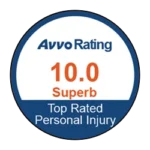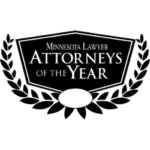Minnesota Car Accident FAQs
Home » Minneapolis Personal Injury Lawyer » Minneapolis Car Accident Lawyer » Car Accident FAQ
- Do I Need a Lawyer for a Car Accident Settlement?
- How Long Does It Take to Settle a Car Accident Case?
- Are Car Insurance Settlements Taxable in Minnesota?
- What Should You Do After a Car Accident?
- What are Common Injuries after a Car Accident?
- What is the Average Settlement in a Pedestrian Accident in Minnesota?
- Is Minnesota a No-Fault State for Car Accidents?
Do I Need a Lawyer for a Car Accident Settlement?
In minor car accident cases with minimal or no injuries, you can possibly get by without a lawyer. In more complex accident cases—those causing at least moderate injuries—a lawyer is essential. You need a professional legal advocate to protect you and your family, particularly in an accident caused by someone else’s negligence.
How Long Does It Take to Settle a Car Accident Case?
The time frame for finalizing a settlement varies from claim to claim. Every car accident settlement is calculated based on the unique details of the injuries and facts of the collision.
Are Car Insurance Settlements Taxable in Minnesota?
The answer is generally no, with some important exceptions.
What Should You Do After a Car Accident?
It can be difficult to think clearly during a crash’s aftermath, but unfortunately, your words and actions at this time can work against you. Knowing what to do at the scene of the accident and after the accident can help you avoid common mistakes that could jeopardize your physical and financial recovery.
What are Common Injuries after a Car Accident?
Some of the most common car accident injuries include whiplash, sprains and strains, and bruises. More serious injuries to the neck, brain, and spine also can occur.
What is the Average Settlement in a Pedestrian Accident in Minnesota?
Milavetz Law’s pedestrian accident attorneys have recovered settlements for clients ranging from $90,000 to over $670,000. The average settlement for a pedestrian accident in Minnesota can vary widely based on the specifics of your case.
Is Minnesota a No-Fault State for Car Accidents?
Minnesota is a no-fault state for automobile accidents. Therefore, drivers must carry no-fault insurance, also known as personal injury protection, or PIP, to ensure coverage is available regardless of who is at fault in an accident.
Discuss Your Legal Questions With A Member Of Our Team
"*" indicates required fields




Speak to an Attorney Today
Let Us Help You With Your Financial Help & Compensation Options



